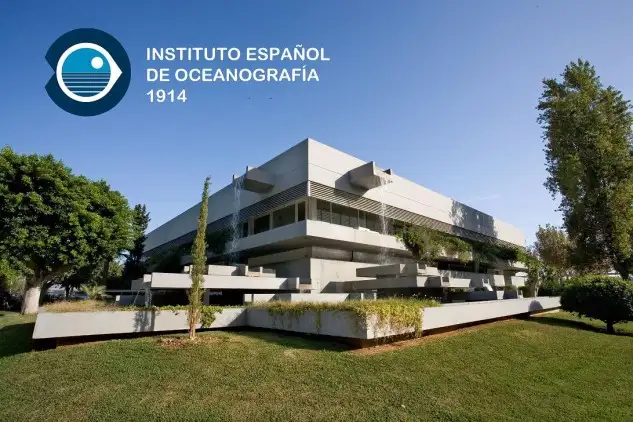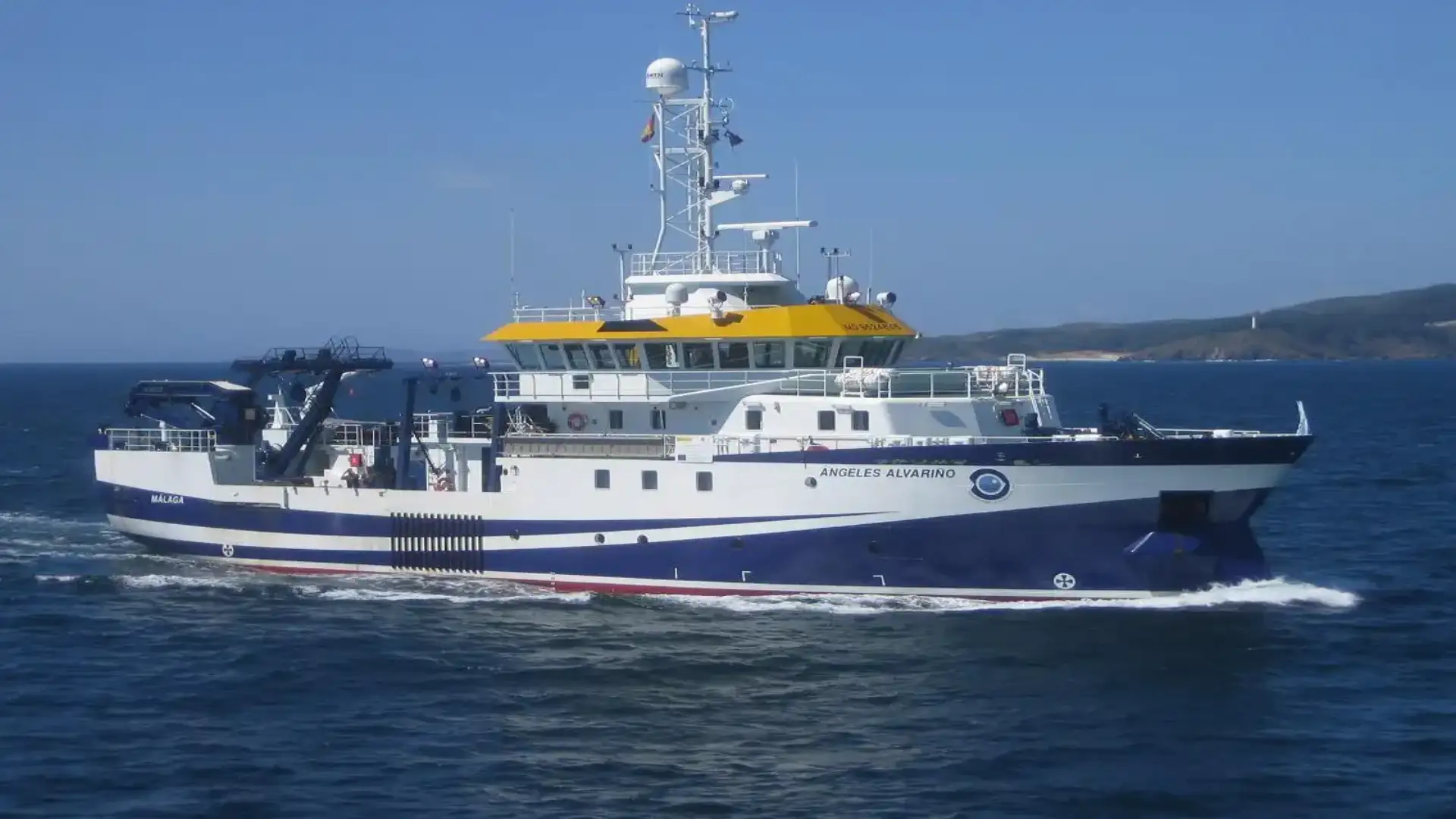
The Spanish Institute of Oceanography, more than 100 years of marine research.
The Spanish Institute of Oceanography, more than 100 years of marine research.
The Spanish Institute of Oceanography established in 1914 is a public research agency dedicated to research in the field of marine science, especially in the areas of scientific knowledge of the oceans, the sustainability of fisheries resources and the marine environment. The IEO currently reports to the Ministry of Economy and Competitiveness, through the State Secretariat for Research.
The IEO is not limited to conducting basic and applied research, but also provides scientific and technological advice to administrations on matters related to oceanography and the marine sciences. In fact, according to the Maritime Fisheries Act 2001, it is the research and advisory body for the Government's sectoral fisheries policy. In addition, he is the scientific and technological representative of Spain in most international forums and bodies related to the sea and its resources. It should also be considered an autonomous body, with its own legal personality and heritage, with a staff of approximately 700, of which 80% are research and research support personnel.
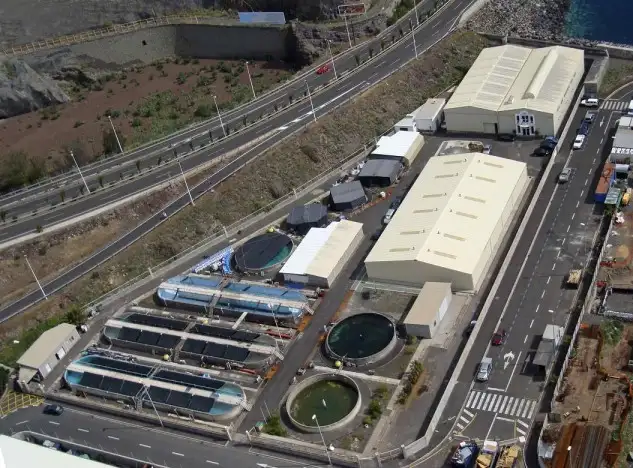
Since 1980, the Oceanographic Centre of the Canary Islands has had an experimental plant of marine crops dedicated exclusively to research in the area of aquaculture. The facilities are fully equipped, including areas of breeding, prengorde, fattening and maintenance, allowing the development of studies on a wide range of topics related to the techniques of growing marine fish and cephalopods. Since its establishment, the Crop Plant has been expanded and improved several times (1983, 1986, 1995, 2008) to adapt to the progress and needs of research.
The IEO budget exceeds EUR 65 million and has wide geographical coverage and important facilities. It has a central headquarters in Madrid and nine coastal oceanographic centres: A Coruña, Baleares (Palma), Cadiz, Canarias (Tenerife), Gijón, Málaga, Murcia, Santander and Vigo; five marine crop testing plants; twelve tidal stations and a satellite imaging reception station. Its oceanographic fleet, of more than 20 ships, has eight important oceanographic vessels, including the 68-metre-long Cornide de Saavedra, and the 46-m twin ships Ramón Margalef and Ángeles Alvariño.
The Spanish Institute of Oceanography carries out basic and applied research in oceanography and the sciences of the sea, as well as other services for the scientific and technological development and maintenance of industrial, social and business activities, with the aim of increasing scientific knowledge of the oceans and making sustainable use of them.
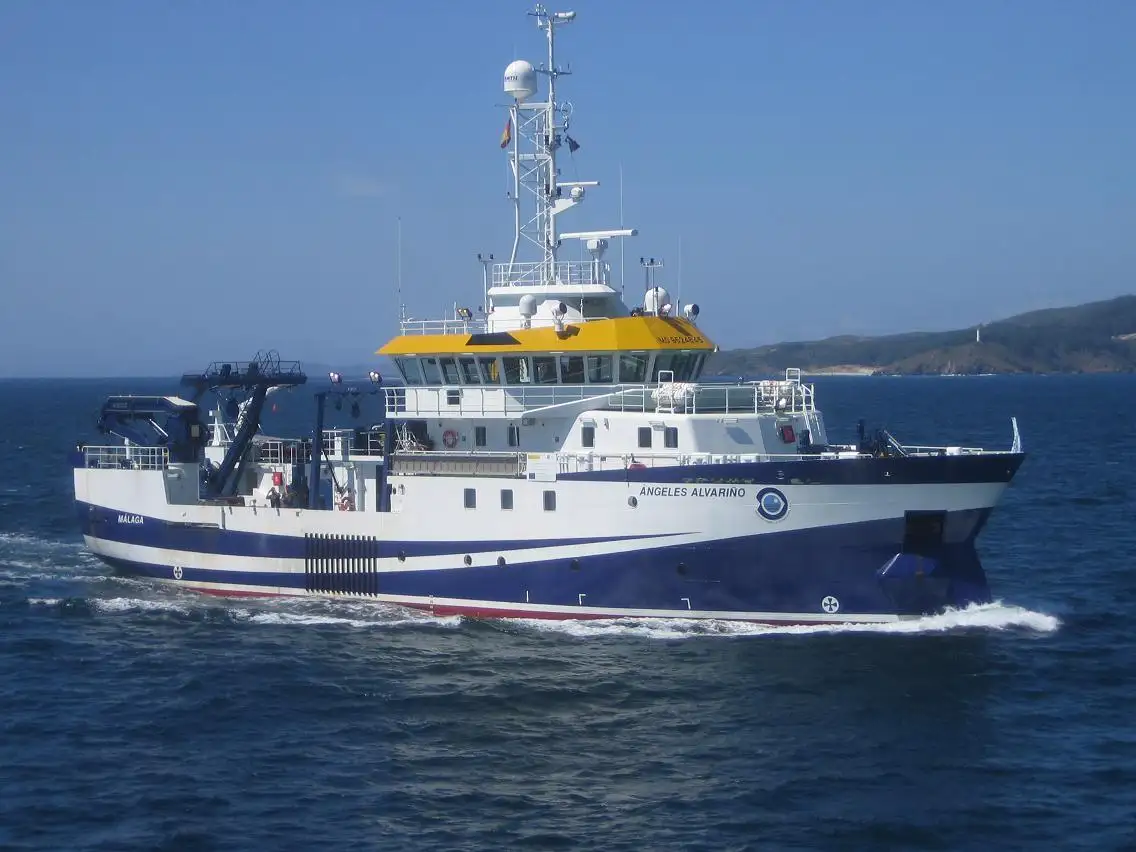
The Institute currently has a fleet of eight oceanographic vessels (in addition to other minor vessels) between 14 and 65 metres long: Cornide de Saavedra, Ramón Margalef, Francisco de P. Navarro, Odon de Buena, José Rioja, J.MÃ. Navaz, Lura, and Ángeles Alvariño. All of them are equipped with the most modern electronic navigation and situation systems, as well as the means to collect samples, both of water and sediments, of physical and chemical variables of seawater, as well as for marine flora and fauna studies.
Its basic functions are:
- Scientific research in oceanography and marine sciences and multidisciplinary study of the sea.
- Advice to the State General Administration in its general fisheries and marine policy.
- Representation of Spain in international fisheries and marine science organizations.
- Promotion of cooperation in marine research at the regional, national and international levels.
- Training marine researchers and dissemination of oceanographic knowledge.
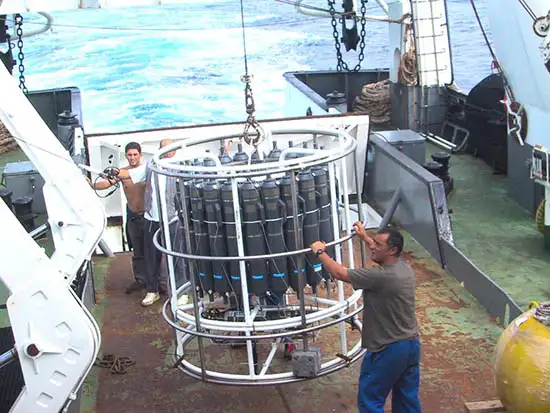
Rosette with several sensors used for the analysis of oceanographic parameters within the Santander Radio. IEO-Santander.
A brief summary of the activities of the IEO includes: conducting quality research in oceanography and marine sciences; representing Spain in international forums related to oceanography and fisheries; studying vulnerable marine ecosystems; developing, coordinating, implementing and managing research programmes on fisheries resources as well as on marine crops; reporting on scientific and technological projects that are subject to its consultation and are related to the marine sciences; studying the continental seas and margins with a multidisciplinary approach; establishing and participating in agreements with public and private bodies, both national and international, for the implementation of scientific and other scientific research projects and activities;
© 2024 Nautica Digital Europe - www.nauticadigital.eu


